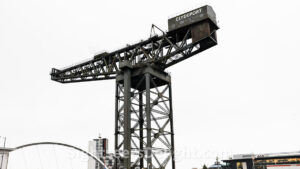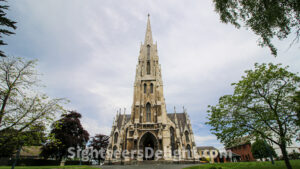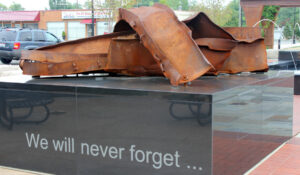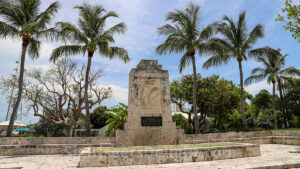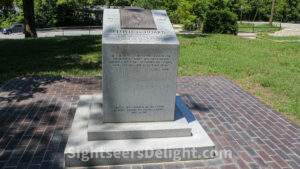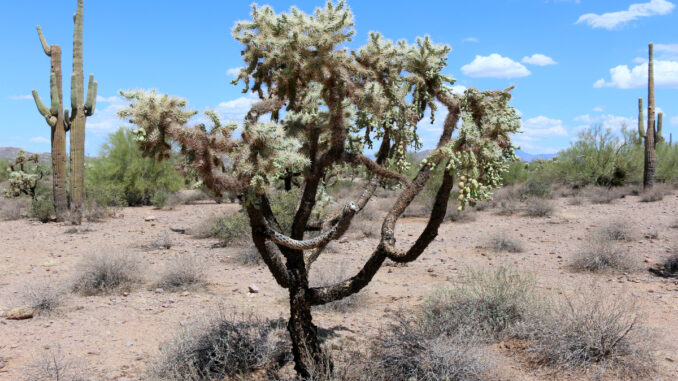
Guidebooks are annoying. Just because some editor who doesn’t know me tells me which restaurant is the best or what attraction is a must-see doesn’t make it a must-see attraction. Sightseers’ Delight is dedicated to the weird, the quirky and the fun. After all, traveling is fun.
If it’s not, you’re doing it wrong.
All of the places highlighted in this ever-growing database are great. Sightseers’ Delight has visited them all. We think you should make a point to see every one of them. But, this is not a guidebook. Just a webpage to help you plan your next adventure.
The Fernandina Beach Marine Welcome Center & Shrimping Museum gives visitors to Amelia Island a quick overview of the shrimping industry and its impact on the region. The Amelia Island Museum of History began running the museum after the city of Fernandina Beach approached the museum in 2010. The small museum, located on the waterfront in downtown Fernandina Beach, includes information about the shrimping industry and the families who played a vital role in its development. Theor efforts helped make the state “the birthplace of the modern shrimping industry.”
32034
The Field Museum of Natural History is one of the largest natural history museums in the world. Known colloquially as The Field Museum, the museum is home to more than 24 million specimens and objects, including gems, meteorites, fossils and cultural artifacts from around the globe. More than 2 million people visit the museum every year. Among the most famous items in the collection are Sue, the largest and most complete Tyrannosaurus rex skeleton currently known, and the infamous Lions of Tsavo.
60605
Malcolm Cochran created “Field of Corn (with Osage Orange),” which debuted in 1994 and as part of a project commissioned by the Dublin Arts Council. The field features 109 rows of corn measuing six feet tall or taller. Sam Frantz, a pioneer of hybrid corn and his wife, Eulalia, previously owned the land and grew corn here. Since debuting, the project wasn’t without its share of controversy.
The Finnieston Crane, or Stobcross Crane in the heart of Glasgow, Scotland, is a massive cantilever crane that is no longer used. However, it remains a significant symbol of the city’s engineering history. This crane was mainly used to load cargo, such as steam locomotives, onto ships for global export. Four of five cranes originally situated on the River Clyde remain today, with the fifth being demolished in 2007. Only eleven giant cantilever cranes like this one still exist worldwide.
First Church is a prominent church in Dunedin and the city’s primary Presbyterian church. The current church, considered to be decorated Gothic style, stands on the stump of Bell Hill, a significant promontory that initially divided the heart of Dunedin in half. Dr. Thomas Burns, the brother of Scottish poet Robert Burns, laid the foundation stone in 1868, but the church was not completed until 1873.
A Coca-Cola syrup salesman named James Couden painted a sign advertising the soda on the side of Young Brothers Pharmacy (known as Young Bros Drug Company at the time). It turns out he made history with his work of art as this was the first Coca-Cola painted wall sign in the world. The pharmacy celebrates the advertisement with a display of Coke memorabilia and collectibles. Interestingly, the Coca-Cola Co. regularly repainted the sign until the late 1970s, but underneath all those paint jobs was the original sign, which was restored in 1989.
30120
In the heart of Hilliard, a bucolic Columbus suburb, stands what is said to be one of the largest Sept. 11 memorials. First Responders Park Memorial is dedicated to first responders nationwide and aims to remind visitors that no matter where they live, they have a stake in what happened on Sept. 11. One of the memorial’s features is a trio of granite walls inscribed with the names of those who lost their lives in the attack. In addition, steel from the World Trade Center was incorporated into the memorial.
43026
The Florida Keys Memorial, also known as the Hurricane Monument, is a landmark located in Islamorada, Florida. The monument was constructed to honor the hundreds of victims of the devastating Labor Day Hurricane of 1935, which caused widespread destruction and loss of life in the Florida Keys. The 81-foot-tall memorial is made of native keystone.
This post partially incorporates text generated with GPT-3, OpenAI’s large-scale language-generation model.
33036
Floyd G. Hoard was the solicitor general of the Piedmont Judicial Circuit when he was killed on August 7, 1967, by a car bomb. He was known for aggressively prosecuting organized crime in the area. Local citizens dedicated the monument on the Historic Jackson County Courthouse grounds on April 19, 1997.
30549



